Our undergraduate students complete a Work-Integrated Learning (WIL) paper in their final year of study as preparation for employment or further study. This is a unique feature of Bachelors' degrees at the University of Waikato that is part of our commitment to help every learner reach their career ambitions.
As individual students have differing career plans, we offer three different types of WIL papers, depending on what a student expects to do immediately after graduating:
- Capstone Projects: Ideal for students who are looking for a career where their science knowledge will be used in a more applied manner.
- Science Work Placements: Ideal for students who are looking for a career where their technical science knowledge will be used directly.
- Undergraduate Research Projects: Ideal for students who are considering enrolling in a postgraduate research qualification e.g. a Masters or PhD degree.
You can find further details of the different opportunities that are available to help kick-start your career in the tabs below. If you are unsure as to what option would be best, please don't hesitate to get in contact with our Work-Integrated Learning Team, who can provide individual advice based on your personal circumstances and career goals.
Capstone projects
There are a selection of Capstone Projects that are currently available for Bachelor of Science (BSc) students in the final year of their degree. To apply for a given Capstone Project, you need to first enrol in the corresponding occurrence of SCIEN301 - Capstone Project in MyWaikato. After that, you will be able to select your preferred Capstone Project in MyWIL.
If you have any questions about the application process, please get in touch with one of our friendly Work-Integrated Learning team members.
Work placements
One of the unique features of our Bachelor of Science (Technology) [BSc(Tech)] degree, is the opportunity to undertake a science work placement at a local business/organisation. To ensure a successful work experience, students complete SCIEN270 - Preparation for the Professional Workplace, in their second year of study. This is followed by the work placement itself, SCIEN371 - Science Work Placement, which normally occurs during the summer between a student's second and third years of study.
Our helpful Work-Integrated Learning team members partner with each BSc(Tech) student to arrange an appropriate work placement that aligns with their skills and intended career path. If you'd like to know more about the BSc(Tech) work placement programme, please don't hesitate to get in touch with one of the team.
Research projects
If you're thinking about continuing your science education with a postgraduate research degree e.g. Masters' or PhD, it's useful to do a small research project in the final year of your Bachelor of Science (BSc) degree. This gives you the chance to try-out whether research is going to be a good fit for you, and allows you to begin working with an academic supervisor who might be interested in supervising your Masters' degree.
We provide the option of completing either a 15-point research project (SCIEN303 - Undergraduate Research Project) during the A and B-trimesters or a 30-point research project (SCIEN313 - Undergraduate Research Project) during C-trimester (over the summer period). Enrolment in these papers requires the convenor’s approval. The convenor is associate professor Graham Saunders, Graham.Saunders@Waikato.ac.nz
In addition, before considering enrolling in one of these papers, please get in contact with some potential research supervisors to find out both their availability and when it would be best to undertake the research project.
Our staff listing page is a good place to start when looking for a potential research supervisor. Here you can easily filter by the different science subject areas to find an academic doing research on a topic that interests you.
If you have any questions about the application process, please get in touch with one of our friendly Work-Integrated Learning Team members.
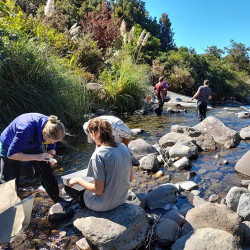 Description: Healthy freshwater ecosystems are critical for life on Earth. Increasingly intensive human land uses have adversely impacted streams and rivers, leading to a loss of ecosystem services and biodiversity. There is strong societal demand to reverse these trends and restore freshwater ecosystems to good ecological health. In this Capstone Project, we will assess how well restoration strategies are working to reconnect communities to their waterways and restore healthy freshwater habitats that sustain native biodiversity and important ecosystem services.
Description: Healthy freshwater ecosystems are critical for life on Earth. Increasingly intensive human land uses have adversely impacted streams and rivers, leading to a loss of ecosystem services and biodiversity. There is strong societal demand to reverse these trends and restore freshwater ecosystems to good ecological health. In this Capstone Project, we will assess how well restoration strategies are working to reconnect communities to their waterways and restore healthy freshwater habitats that sustain native biodiversity and important ecosystem services.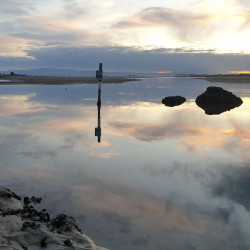 Description: Complete an interdisciplinary project of relevance to the community, in the theme of marine conservation and underwater sound. We will visit an area of a newly established Marine Protected Area (MPA) in the Bay of Plenty and will engage with the community and stakeholders such as the regional council, Department of Conservation and iwi/ hapū.
Description: Complete an interdisciplinary project of relevance to the community, in the theme of marine conservation and underwater sound. We will visit an area of a newly established Marine Protected Area (MPA) in the Bay of Plenty and will engage with the community and stakeholders such as the regional council, Department of Conservation and iwi/ hapū.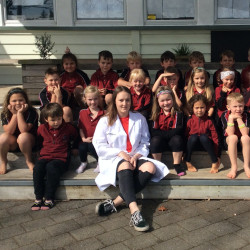 Description: Work alongside a local primary school teacher to assist them in teaching science to the next generation of budding scientists.
Description: Work alongside a local primary school teacher to assist them in teaching science to the next generation of budding scientists.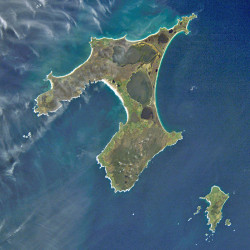 Description: Develops skills in preparing for, undertaking, and analysing the results of an extended field investigation to Rēkohu.
Description: Develops skills in preparing for, undertaking, and analysing the results of an extended field investigation to Rēkohu.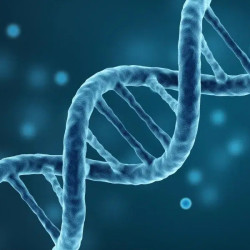 Description: Develop a detailed working knowledge of the techniques that are commonly used in modern molecular biology.
Description: Develop a detailed working knowledge of the techniques that are commonly used in modern molecular biology.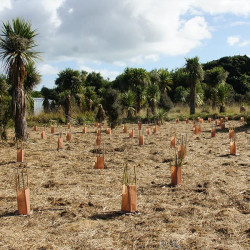 Description: Learn about the theory and practice of native plant restoration at the community and species level, with a mixture of field visits and lab analysis.
Description: Learn about the theory and practice of native plant restoration at the community and species level, with a mixture of field visits and lab analysis.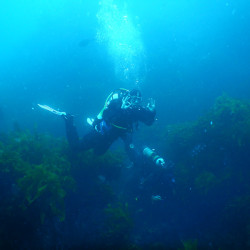 Description: You will learn about the importance of monitoring the underwater environment and marine reserves, with specific focus on the Waikato coastline. This paper provides opportunity to interact with scientists, iwi and coastal managers from a variety of organisations/locations and learn about the breadth of projects that use scuba for science.
Description: You will learn about the importance of monitoring the underwater environment and marine reserves, with specific focus on the Waikato coastline. This paper provides opportunity to interact with scientists, iwi and coastal managers from a variety of organisations/locations and learn about the breadth of projects that use scuba for science.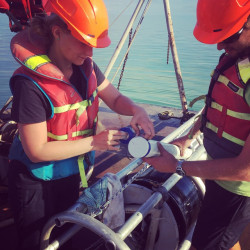 Description: Complete 10 weeks of work experience at a local business/organisation that is relevant to your science studies. In most cases, students will be paid by the business/organisation.
Description: Complete 10 weeks of work experience at a local business/organisation that is relevant to your science studies. In most cases, students will be paid by the business/organisation.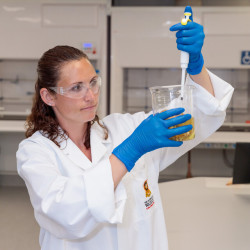 Description: Experience a genuine research environment by completing an undergraduate research project on an approved science topic under staff supervision.
Description: Experience a genuine research environment by completing an undergraduate research project on an approved science topic under staff supervision.